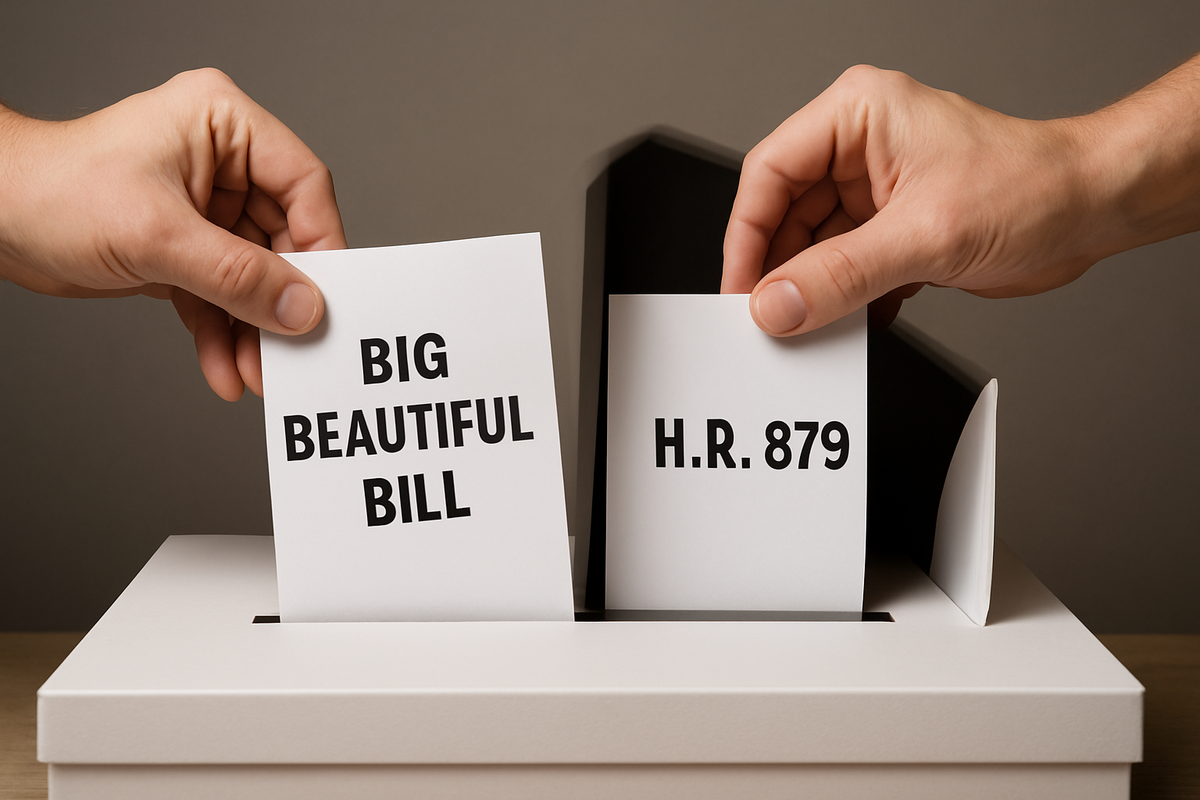Baumgartner Backed the Cuts. Then Tried to Take Credit for the Fix

A Quiet Betrayal, Then a Sudden Conversion
The bipartisan H.R. 879 was introduced in January 2025 to respond to a 2.83% Medicare cut that had just taken effect. The Washington State Medical Association, the American Medical Association, and rural health providers nationwide urged Congress to act quickly to minimize the damage. In Eastern Washington, the warnings were clear: stabilize payments or watch clinics close. In response, Rep. Michael Baumgartner (R-WA-5) didn’t just ignore the warnings. He voted for even deeper cuts.
His vote for H.R. 1, the so-called 'Big Beautiful Bill', supports planned cuts of half a trillion dollars in Medicare costs. But in June, months after he backed deeper cuts and ignored H.R. 879, mounting public pressure from the WSMA, hospital executives, and rural constituents forced Baumgartner to cave and he finally signed on as a co-sponsor. But by then, the damage was done.
What H.R. 879 Does
The Supporting Medicare Providers Act of 2025 (H.R. 879) reverses the 2.83% cut and provides a 2% increase to Medicare reimbursement rates through year’s end. The Washington State Medical Association called the bill “a necessary stopgap” to stabilize physician practices and protect patient access to care, especially in rural areas.
Two Votes. One Contradiction.
Baumgartner’s co-sponsorship of H.R. 879 came not as an act of leadership, but as a scramble to contain the fallout. Just months earlier, he had praised Trump’s “Big Beautiful Bill.” Not only does the partisan legislation mandate $500 billion in Medicare cuts, it includes reductions to physician reimbursements and introduces caps on provider payments.
“I am proud to support the Big Beautiful Bill in full,” Baumgartner declared in a February press release. “It reflects our priorities ... cutting waste, restoring fiscal discipline, and putting America first.”
These two votes are irreconcilable. Not just inconsistent, but contradictory. One supports deeper Medicare cuts. The other attempts to reverse them. Inexplicably, Baumgartner continues to support both.
Calculated Politics, Not Principle
In Washington D.C., it’s a familiar maneuver: back a damaging bill, then co-sponsor a patch and ask for credit. But for communities already struggling to keep clinics open, this isn’t recovery. It’s a retreat. And it signals not principle, but political calculation.
Rural Providers Sounded the Alarm
Health care leaders across the region warned early and often. Jennifer Hanscom of the WSMA cautioned that Medicare cuts would have “long-term impact on your ability to provide care.” Alex Jackson of MultiCare added, “Fewer dollars coming in the door put clinics and hospitals in the position to make difficult decisions.” CHAS Health CEO Aaron Wilson was even more blunt: “We’re already seeing the cracks. Without Congressional relief, we’ll be making very difficult decisions.”
Yet Baumgartner offered no early support, no outreach, and no mention of the crisis. His silence sent a message that providers across the region heard clearly: they were on their own. And during those months of silence, the consequences were already visible. Clinics began freezing hiring, staff hours were reduced, and local executives warned closures were on the table.
Which Michael Baumgartner Is Real?
Baumgartner claims to be a defender of Medicare. But he endorsed a bill that slashed it, then quietly co-sponsored one that tries to reverse the same cuts. Either he didn’t read what he voted for, or he’s hoping his constituents didn’t.
This is not leadership. His vote is a calculated pivot under pressure. And it raises a serious question of trust: which version of Michael Baumgartner is real? The one who cheered Trump’s cuts, or the one now seeking praise for trying to undo them?
What’s at Stake for WA‑5
Medicare cuts don’t just affect spreadsheets. They also threaten clinics, nursing homes, and hospitals. They force providers to reduce hours, cut services, or shut down entirely. In underserved regions like Eastern Washington, the consequences are even more dire.
Counties like Ferry, Stevens, and Columbia depend on stable Medicare reimbursements to keep clinics staffed, ambulances running, and patients cared for. With costs rising and recruitment already difficult, any disruption to payments poses an existential threat to care.
The passage of H.R. 879 may blunt some of the harm, if it passes. But the delay has already taken a toll. For many, Baumgartner’s co-sponsorship wasn’t a defense of Medicare. It was a retreat from a political crisis he helped create.

